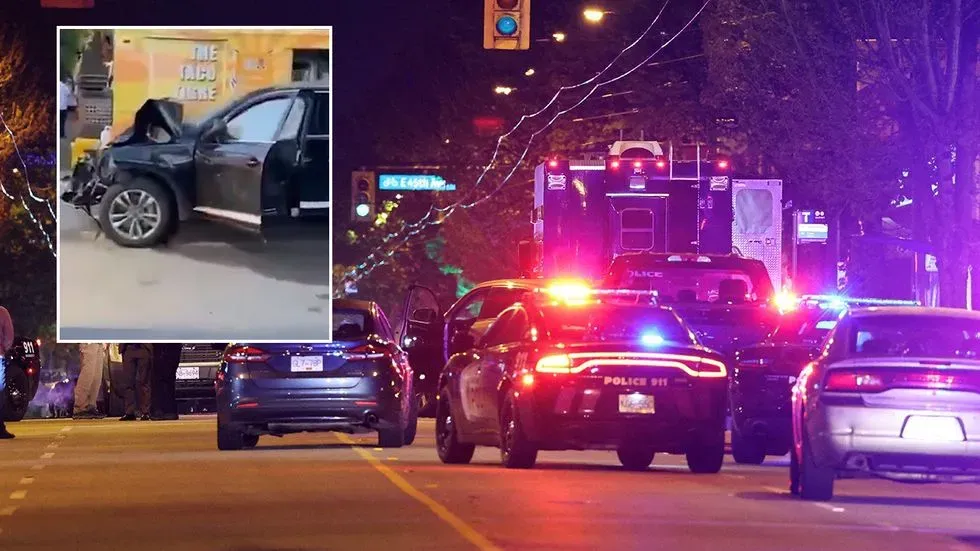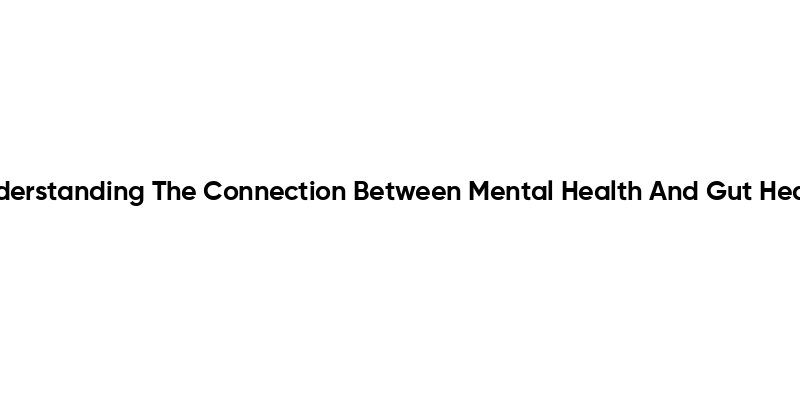In the aftermath of the devastating Vancouver attack, which tragically claimed the lives of at least 11 individuals, the political landscape in Canada has been deeply affected. The incident unfolded during a vibrant community festival, shocking residents and officials alike. Bloc Québécois leader Yves-François Blanchet addressed the media with a somber tone, emphasizing that the jovial demeanor of his candidates in Quebec should not be misconstrued as a lack of compassion for those mourning this tragedy in Vancouver. With the Canadian elections looming, political leaders across the country have expressed their condolences and reflected on the somber implications of such violence on national unity. As cities across Canada gather for a vigil for victims, the echoes of this calamity resonate, calling for solidarity and compassion in a time of mourning.
In light of the horrific events in Vancouver, which saw a tragic attack during a local festival, the ramifications are being felt far beyond the city’s borders. The incident has left a deep scar on the community, prompting discussions about safety and support for the victims’ families. Bloc Québécois head Yves-François Blanchet noted that while campaigning in Quebec, the actions of his party members were not meant to show insensitivity amidst the profound grief in Vancouver. As Canadians unite in sorrow, public figures are increasingly shifting their focus to issues of national empathy and resilience as they prepare for the upcoming elections. The diverse reactions from political leaders reflect a nationwide concern over the tragedy’s impact on communities, especially within the Filipino community, highlighting the need for reflection and understanding in such dark times.
Understanding the Impact of the Vancouver Attack
The Vancouver attack has sent shockwaves across the country as Canadians grapple with the tragedy that claimed at least 11 lives and injured many more. This horrific event not only traumatized the local community but also sparked an emotional response nationwide, prompting reflections on safety during public gatherings. The incident occurred during Lapu Lapu Day, an important cultural celebration for the Filipino community, amplifying the sorrow felt by many who were present. With diverse representation from various parts of Canada, the tragedy in Vancouver resonates deeply, particularly among those whose communities celebrate such events.
As the details of the Vancouver attack emerged, political leaders swiftly responded, offering condolences and support to the affected communities. Bloc Québécois Leader Yves-François Blanchet expressed his heartfelt sympathies during his campaign remarks, emphasizing the need for empathy in the face of such senseless violence. The collective mourning observed across Canadian cities illustrates how interconnected the nation remains, especially during a time when citizens are preparing for significant decisions in the Canadian elections.
Bloc Québécois Candidates’ Responses to Criticism
Following the Vancouver attack, the behavior of Bloc Québécois candidates during a campaign event raised eyebrows amid public mourning. Blanchet defended his team’s spirited engagement of singing and dancing, arguing that their actions should not be interpreted as insensitivity towards the victims of the tragedy in Vancouver. This sentiment underscores a critical aspect of Canadian politics where leaders strive to balance campaign enthusiasm with genuine compassion during moments of collective grief. While some critics viewed the festivities as inappropriate, supporters emphasized the importance of maintaining morale and positivity as part of political engagement.
Despite the unexpected backlash, Blanchet remained steadfast in addressing the concerns, reminding reporters that such expressions of joy do not imply a lack of compassion for the mourning families affected by the tragedy. The Bloc Québécois’ campaign events showcased a mix of celebration and somber reflection, embodying the complex expressions of human emotion during election season. As candidates navigate their roles in the community, they also face the challenge of acknowledging tragedies while promoting their electoral agendas, illustrating the delicate balance required in contemporary politics.
Community Reactions Following the Tragedy in Vancouver
The attack in Vancouver has provoked profound reactions from communities across Canada, particularly within the Filipino population who were directly affected by the incident. Many individuals expressed their sorrow and solidarity with those mourning the loss of loved ones during the Lapu Lapu Day festivities, emphasizing the importance of community support in times of crisis. Community leaders and residents alike found strength in coming together, holding vigils to honor the victims while discussing ways to uplift one another in the face of such adversity. The sentiment of mourning resonates not only in Vancouver but has extended to other regions in Canada, highlighting the interconnectedness of national communities.
Furthermore, local governments and officials have also voiced their commitment to ensuring the safety of public gatherings in the future. Mayors and provincial leaders, such as Montreal’s Valérie Plante and Quebec’s François Legault, have publicly addressed the tragedy, reinforcing their determination to support the healing process for victims’ families and the larger community. The solidarity across various levels of government illustrates a commitment to address the societal issues that may have contributed to this tragedy and ensures that the voices of affected communities, like that of the vibrant Filipino and broader Vancouverite population, are prioritized in these discussions.
Blanchet’s Leadership Amidst National Mourning
Yves-François Blanchet’s leadership style has come under scrutiny as he navigates the delicate landscape of political campaigning following the Vancouver attack. His ability to articulate compassion while rallying support for the Bloc Québécois speaks to his experience as a seasoned political figure. Blanchet’s compassionate statements regarding the victims of the tragedy showcase his understanding of the emotional weight carried by the public, especially during such a significant time in the Canadian elections. His efforts to balance political goals while promoting communal empathy reflect the complex nature of leadership during crises.
In recent statements, Blanchet has underscored the need for compassion regardless of the festive political climate, which many interpret as a call to unify his party’s message with the evolving sentiments of Canadian voters. As the Bloc aims for electoral success, Blanchet’s challenge remains to ensure that the focus remains on the issues that matter to Canadians while acknowledging the significance of recent events. By engaging with issues of public safety and community support, he aligns the party’s platform with the urgent concerns arising from the tragic events in Vancouver.
The Cultural Significance of Lapu Lapu Day
Lapu Lapu Day is a vibrant celebration within the Filipino community, honoring cultural heritage and the spirit of resilience. The festival not only serves to bolster community ties but also highlights the contributions of Filipino Canadians to the multicultural fabric of Canada. The Vancouver attack, which interrupted this year’s festivities, casts a shadow over what should have been a joyous occasion, stirring discussions about the importance of safety during cultural events. This unforeseen tragedy has challenged community leaders to reflect on how to safeguard inclusivity and joy within their celebrations while being vigilant against potential threats.
Moreover, the reaction to the attack has fostered a renewed emphasis on cultural education and understanding among broader Canadian society. As communities seek to heal, many are calling for conversations around respect for diverse cultures and traditions. The awareness raised by the tragedy during Lapu Lapu Day offers an opportunity for increased solidarity among various ethnic groups in Canada. By focusing on unity during difficult times, leaders and community members can use occasions like Lapu Lapu Day as platforms for greater awareness of the challenges faced by their communities, ultimately contributing to a more harmonious society.
Political Reactions to the Vancouver Attack
The Vancouver attack received widespread political backlash as many leaders reevaluated their campaign strategies in light of the tragedy. The federal elections backdrop amplifies the urgency for political figures to address the sensitive nature of public safety and mental wellness among constituents. The tragic loss of life has catalyzed discussions across party lines about the need for more robust policies aimed at preventing violence and protecting Canadian citizens during public events. A wave of solidarity has swept across political parties as they come together to extend condolences, while also recognizing the need to support affected communities visibly.
Additionally, the response from party leaders demonstrates the power of partisanship in the face of collective grief. Prominent figures like Liberal Leader Pierre Poilievre and Bloc Québécois Leader Yves-François Blanchet have publicly expressed their shock and empathy, contributing to a narrative that prioritizes community healing over political division. The tragic events serve as a reminder that elected representatives have a profound responsibility not just during campaign periods but also in fostering unity and support during national crises. The discourse surrounding the Vancouver attack will likely influence voter behavior, as constituents seek leaders who champion compassion and proactive measures.
Safety Concerns During Canadian Elections
As the Canadian elections approach, heightened concerns surrounding safety in public gatherings have taken center stage, especially following the recent Vancouver attack. Political campaigns often involve large gatherings, rallies, and events where citizens come together, but incidents like these prompt critical reflections on how to ensure the safety of participants. Political leaders are now faced with the dual challenge of inspiring engagement while addressing community fears about their security at these gatherings. Consequently, there is an increasing demand for adequate safety measures to be integrated into campaign events.
Moreover, this tragedy serves as a stark reminder that national discourse surrounding public safety must lead to actionable outcomes. Campaigns are an opportunity for candidates to engage directly with their communities, yet the fear of violence may deter participation in democratic processes. Political parties must work collaboratively with law enforcement and community organizations to enhance security protocols for events, ensuring that citizens feel secure while exercising their democratic right to vote. It is imperative that the electoral process remains accessible and safe for all.
Community Vigil for Victims of the Vancouver Attack
In the aftermath of the Vancouver attack, a vigil honoring the victims unites the community in compassion and solidarity. Such events provide a space for grieving families and friends, as well as all those affected by the tragedy, to share their stories and find comfort in one another’s presence. Community vigils serve as poignant reminders of the importance of coming together during moments of unspeakable sorrow, fostering connections among attendees that transcend cultural and socio-political differences. By participating in these acts of remembrance, the community affirms its resilience and strength in the face of adversity.
Furthermore, the vigil acts as a catalyst for advocacy, urging policymakers to reflect on the safety challenges faced by citizens during public gatherings. When communities come together to mourn, they also highlight the need for immediate action against violence, and policymakers are called to take notice. Vigils provide a platform for speakers, including community leaders and elected officials, to educate attendees on the importance of dialogue around public safety and community relations. Through these initiatives, the narrative surrounding the tragedy in Vancouver evolves from grief to hope for preventative measures that ensure such incidents do not recur.
The Role of Media in Shaping Public Perception
The media plays an influential role in shaping public perception following the Vancouver attack, offering a lens through which the events are interpreted. The narratives constructed by journalists and news outlets heavily influence how communities understand the implications of this tragedy, especially in the context of the Canadian elections. Media coverage can spark discussions around the need for better safety measures during public events, highlighting the urgency of addressing issues related to violence. Moreover, the portrayal of political leaders, such as Yves-François Blanchet, during this time can impact voter sentiments as they navigate the balance between expressing condolences and continuing their campaign agendas.
As coverage unfolds, it becomes crucial for the media to report responsibly, considering the emotional weight of the situation while balancing the need for public information. Actions taken by politicians in the wake of the Vancouver attack can greatly influence their reputations, and media narratives can perpetuate or diminish public trust. Attention must also be given to how diverse communities, such as the Filipino population, are represented in discussions, ensuring that their voices and experiences are heard and validated. Ultimately, the role of media can bridge understanding and unity during a national moment of mourning.
Frequently Asked Questions
What happened during the Vancouver attack on Lapu Lapu Day?
The Vancouver attack occurred on Lapu Lapu Day when a black SUV drove into a pedestrian-only area, killing at least 11 people and injuring over 20 others as they celebrated at a local festival. This tragic event has shocked the Vancouver community and the nation.
How did Yves-François Blanchet react to the Vancouver attack?
Yves-François Blanchet expressed his heartfelt condolences to the families affected by the Vancouver attack and emphasized his empathy for the victims, calling the incident a tragedy for both Vancouver and British Columbia.
What was the Bloc Québécois candidate’s reaction during the Vancouver attack?
Despite the tragedy in Vancouver, Bloc Québécois candidates were seen singing and dancing prior to a campaign event, which prompted Blanchet to clarify that this did not reflect a lack of compassion for those suffering from the attack.
How did the Vancouver attack affect the Canadian elections?
The tragedy in Vancouver led to significant changes in the campaign schedule for various political parties, including the cancellation of major rallies by the Liberal Party as they mourned the victims and adjusted their public appearances.
What was the community response to the tragedy in Vancouver after the attack?
The Vancouver community, particularly the Filipino community, received support and condolences from various politicians and leaders across Canada, including expressions of solidarity from Quebec’s Premier François Legault and Montreal’s Mayor Valérie Plante.
What activities were planned for Lapu Lapu Day before the Vancouver attack?
Lapu Lapu Day in Vancouver was celebrated with a festival that attracted hundreds of attendees. Unfortunately, it turned to tragedy when a vehicle drove through the crowd, impacting the joyful atmosphere and leaving the community in shock.
Why was the Bloc Québécois campaign affected by the Vancouver attack?
The Vancouver attack on the eve of the Canadian elections created a somber atmosphere, with Bloc Québécois candidates expressing their condolences and adjusting their campaign messages to acknowledge the tragedy and show support for the victims and community affected.
Did Yves-François Blanchet change his campaign plans following the Vancouver attack?
Yves-François Blanchet did not modify his campaign schedule, implying that he aimed to show solidarity with the victims while maintaining his focus on the ongoing electoral challenges across Quebec.
| Key Points |
|---|
| Yves-François Blanchet’s reaction to the Vancouver attack and his candidates’ behavior. |
| The Bloc Québécois candidates were seen singing and dancing before an important campaign meeting amid national mourning for the Vancouver attack victims. |
| Blanchet affirmed the enthusiasm of his candidates does not indicate a lack of compassion for those affected by the attack. |
| At least 11 people were killed and over 20 injured in the car attack during Lapu Lapu Day festivities in Vancouver, according to authorities. |
| The attack led to a reshuffling of political schedules nationwide, with major campaign events canceled by various parties. |
| Both Quebec leaders and the Bloc Québécois expressed sympathy towards the victims and their families, emphasizing community solidarity. |
Summary
The Vancouver attack has left Canadians in mourning, with at least 11 lives lost and many others affected as a devastating car incident unfolded during a cultural festival. While the Bloc Québécois candidates celebrated moments before this tragedy, Yves-François Blanchet reassured the public that their enthusiasm does not reflect a lack of empathy towards those suffering from the aftermath. The attack has significantly impacted political campaigning, prompting leaders across Canada to adjust their events out of respect and solidarity for the victims and their families.



